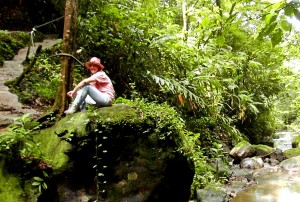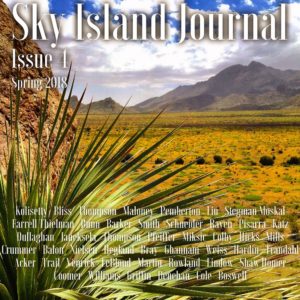(Adapted from a presentation given at Allyson Latta’s 2012 writers’ workshop in Costa Rica)
Point of view
Many years ago, I fell in love with Joseph Conrad. I read every single book and story, one right after another. I got excited. He gave me hope. Not that I could write as compellingly as he, but that I could have a point of view, a perspective worth sharing. At the time I didn’t know what this might be, but I certainly could identify with his. I loved his capacity for close observation and at times thrilling description, but most of all I loved his humanity, his understanding of the inner workings of people, their secret selves and what makes them choose the evil or the good. And I especially enjoyed his delicately ironic sense of humor, since I shared something similar myself. In spite of having spent hundreds of hours in literature classes, this was the first time I “got it” that writers must write from a personal worldview, and it gave me courage.
I was forty-something and, fortified by Conrad, I decided to start writing on purpose, and this was part of my motivation in moving away from a high-stress job to another country – Costa Rica – where I imagined I could get a better handle on just that. There were plenty of false starts, and life got in the way a lot (moving to another country is not an unstressful thing to do), but over time I honed my skills and learned plenty of important lessons. But what to write about? Here’s where the sense of place enters the story.
A sense of place
Living in a foreign culture eventually strips you clean of all the cultural encrustations you’ve accumulated in your previous life and leaves you naked and vulnerable. For some, this is a terrifying experience of helplessness. For others, it’s an adventure of discovery – not just of the other language and culture, but of yourself, of what really matters to you. Living in Costa Rica, I found that my values firmed up about things I really hadn’t given a lot of thought to before.
But how to write in such a way that your readers can “see” it the way you see it? You have to describe things – accurately, lyrically, whatever way you want – but in order to do any of these you have to observe closely – physically and emotionally – whatever it is you want to describe. It was this exercise of close observation that resulted the deep sense of place that informs my forthcoming memoir, Evelio’s Garden. The most important lesson this work taught me, from a writer’s point of view, was to close my eyes and go there, wherever that was, into the quiet place where the words – amazingly – just came.
Telling the truth
I had a big problem with truth for a lot of years. I would go back over something I’d written and find it just didn’t jibe with something real inside me that I couldn’t put my finger on. Maybe we all face this in the beginning, the desire to reinvent ourselves through language or stories, and we find that they don’t quite ring true – I mean true to the human experience, not true to the facts. Some of us need a lot of living before we can find this truth, and it can take great courage to face it, and then, ultimately, to tell it. After all, what do we have to lose? Realizing this, I finally found that truth exists only in the place where acceptance lies.
The truths of the human condition haven’t changed much – like the 100 great plots, they’re familiar to us all. But with an understanding of our own personal truth, each of us can bring a unique perspective to the human story. Anonymous was right when she/he wrote that writers write not because they want to say something, but because they have something to say. And that “something to say” must ring true.
Writing from the heart
All writing is really best if it teaches us something. What does what I have experienced or lived have to offer you? How can the way I put something down on paper help you to experience it more deeply, or in a fresh way; make you reflect, or stop for just a moment to say to yourself, “Ah, that’s the way it is”?
Writing makes me feel more alive because it forces me into each moment I describe in a way that can make connections with others. Feeling the thing observed, the moment, and then describing it so that someone else experiences that same moment through one’s words – these are moments of truth shared. It is in this heightened awareness, in this search for connections that we really exist as writers.
This was brought home to me not long ago in intensive care, when I was on a respirator and couldn’t speak. Fortunately, I had a notebook with me, and I could write brief requests or comments to the staff and doctors. It interested me how intently everyone followed the act of my writing. I would signal in the air that I wanted to scribble, they would rush to find my notebook, pen and glasses (never in the same place twice), and then they would peer over my shoulder to see what I was going to “say.” It occurred to me then that they attached so much importance to what I wrote because I was writing it to them. Being the intended recipients of the written word made them feel important. Connections being made. In this light, we can almost see writing as an act of love.
© Sandra Shaw Homer, 2014

Photo by Marten Jager



